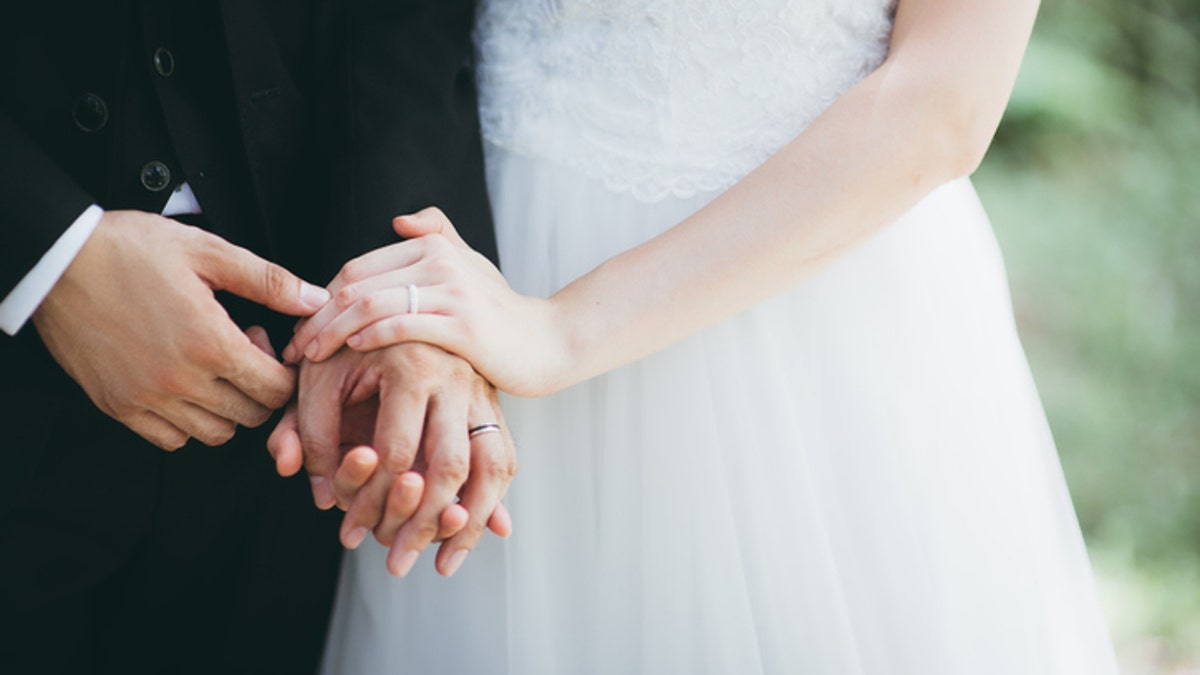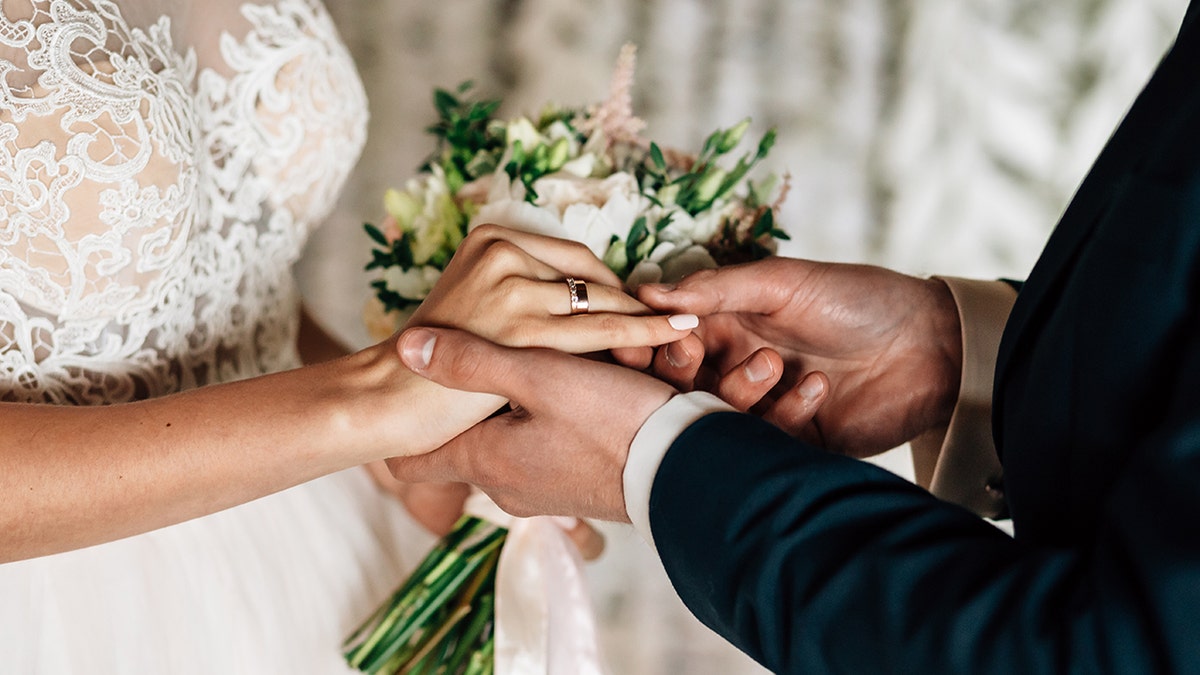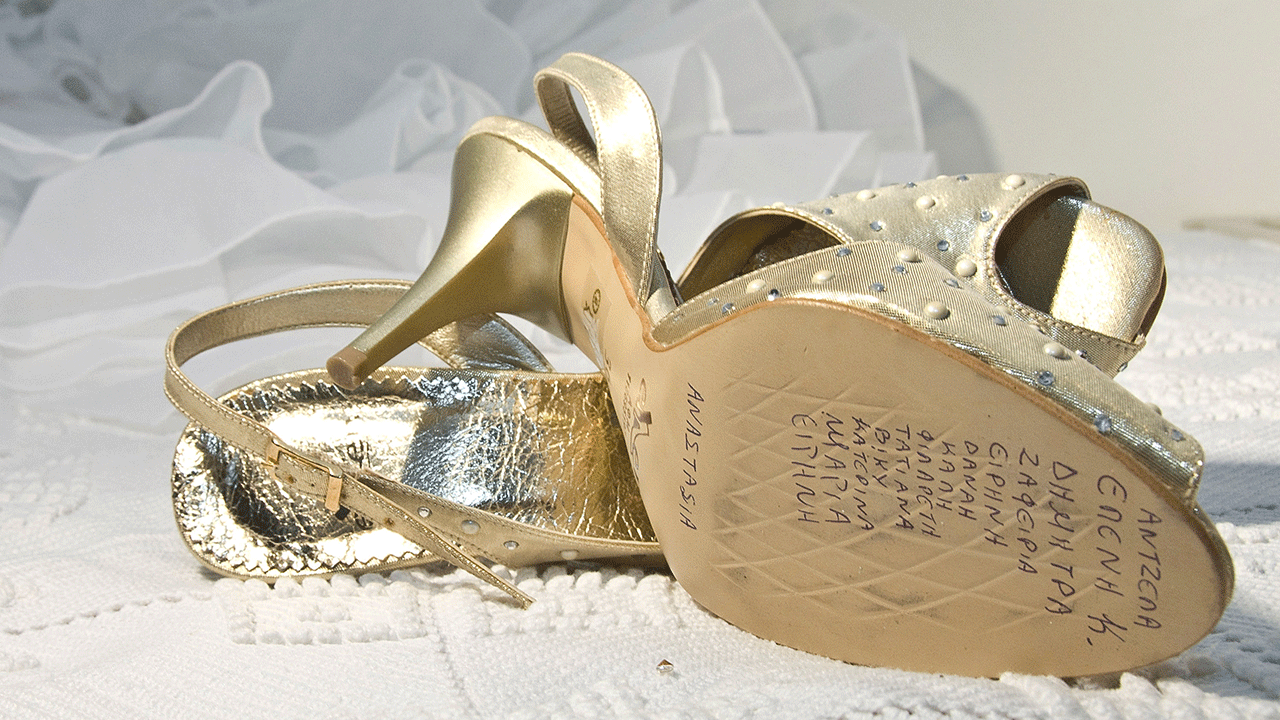Couples married for 5 decades share secrets to successful marriage
Joel and Helene Kutnick, Arline and Stan Willbanks reveal their secrets to a loving and successful marriage in an interview with Fox News Digital.
Every culture includes members who maintain traditions throughout a lifetime of important life events, including wedding days.
In Greek culture, ancient traditions are typically on full display during both the ceremony and the reception.
Whether you're planning or attending a Greek wedding, or have simply found yourself curious about traditions, read on to find out what makes the culture unique.

There are many customary traditions that make up a Greek wedding. (iStock)
BEYOND THE REGISTRY: UNIQUE WEDDING GIFTS COUPLES WILL LOVE
- Candles during the ceremony
- Koumbaro and koumbara
- Wedding crowns
- Bridal shoes
- The money dance
- Koufeta
- The marital bed
1. Candles during the ceremony
During a Greek wedding service, the bride and groom each hold a candle called lambatha.
The candles are each lit, representative of the couple's willingness to receive Christ, according to Brides.com.
The couple also sips from what is known as "the common cup." The common cup is filled with blessed wine. Both the bride and groom take three sips from the same cup, according to the site. Sipping from the same cup symbolizes the joys and sorrows of life they will share together.
After drinking from the cup, the couple is led by the priest to walk around the marriage table three times, according to The Knot.
2. Koumbaro and koumbara
The koumbaro and koumbara are wedding sponsors, according to Brides.com. The role of these individuals is to guide the couple through their marriage, according to the source.
The roles are given to those who are Orthodox Christian. They traditionally double as the best man and the maid/matron of honor.
Another job of the koumbaro is to exchange rings. After the bride and groom place their rings on the tips of their fingers, the koumbaro exchanges them three times. This is followed by the priest blessing the rings three times.
Many things in a Greek wedding are done in threes. This odd number is considered good luck as it can not be divided. Three also represents the Holy Trinity: the Father, Son and the Holy Spirit.

One job of the koumbaro at a Greek wedding is to exchange the rings three times. (iStock)
SAVE MONEY ON YOUR WEDDING WITH THIS DIY GUIDE
3. Wedding crowns
Wearing wedding crowns is very common at Greek weddings. Marital crowns, or stefanas, are said to have originated in the 11th century and continue to be used today, according to Wedding Wire.
During the ceremony, the priest places the crowns on the bride's and groom's head. The koumbaros then intertwine the crowns three times and tie them together with a ribbon, according to the source. The crowns symbolize unity.
4. Bridal shoes
At many weddings, the single lady who catches the bride's bouquet is said to be the one to be married next. A similar gesture is made during a Greek wedding, but it includes the bride's shoes, according to The Knot.
On her wedding day, a bride will write the names of all her single friends on the bottom of her shoe. At the end of the night, the names that have rubbed off the shoe are said to be the most likely to get married next.
NEWLY ENGAGED? USE THIS TIMELINE TO PLAN YOUR WEDDING DAY FROM 12 MONTHS OUT TO THE BIG DAY

Greek tradition says a bride should write her single friends' names on the bottom of her shoe and that the ones that rub off will get married next. (Bastian Parschau/Getty Images)
5. The money dance
There are several traditional wedding dances you're likely to see at a Greek wedding. One of these is referred to as the money dance. The groom and his wife dance together while guests throw money their way.
This ancient practice originated in Greek villages, where guests would pin money on the bride as she danced, according to The Knot.
6. Koufeta
Koufeta are sugar-coated almonds. These are often given as a party favor at Greek weddings.
The almonds are always given in groups of five because it is an odd number that cannot be evenly divided. The five almonds represent five wishes: health, wealth, happiness, family and long life together, according to the source.
7. The marital bed
The krevati, or the marital bed, is where the couple retreats to at the end of a day filled with wedding festivities. The couple's wedding bed is decorated by their family and friends before the big day.
CLICK HERE TO GET THE FOX NEWS APP
Common items found on the marital bed of a Greek couple are rose petals, jewels, glitter, money and rice. Money is added to symbolize the couple's wealth and rice symbolizes the pair putting down roots, according to The Knot.
